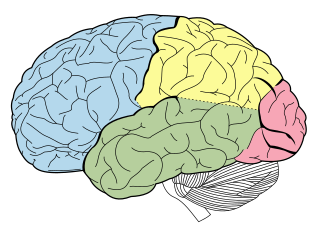A Quote by Sara Cox
My brain is always whizzing around with worries: could I have done an interview better? Have I prepared enough for the next one? If it's really bad, I'll listen to an audiobook or use the Headspace app, and then my brain usually goes back to sleep.
Related Quotes
There is also a particular area of sleep called slow-wave sleep. I immediately liked this idea. It turns out this part of sleep is where the brain basically gets into step with itself and gets into this one single phase of these relatively slow brain waves - around 10 Hz or so - and the whole brain 'fires all at once'. This is a brilliant bit of sleep where we consolidate memory and learning, and memory is one of my obsessions really.
We now know that the way to help a child develop optimally is to help create connections in her brain—her whole brain—that develop skills that lead to better relationships, better mental health, and more meaningful lives. You could call it brain sculpting, or brain nourishing, or brain building. Whatever phrase you prefer, the point is crucial, and thrilling: as a result of the words we use and the actions we take, children’s brains will actually change, and be built, as they undergo new experiences.
Everyone uses the brain at every moment, but we use it unconsciously. We let it run in the background without realizing the power we have to reshape the brain. When you begin to exercise your power, the everyday brain, which we call the baseline brain, starts to move in the direction of super brain.
Just as important as getting enough sleep is thinking about sleep in the right way. Stop thinking of sleep and naps as “downtime” or as a “waste of time.” Think of them as opportunities for memory consolidation and enhancing the brain circuits that help skill learning. Nor should you feel guilty about sleep. It's just as crucial a part of successful brain work as the actual task itself.
If there is something that strikes me as interesting or beautiful or something I could learn from, and I don't write it down, then I could be at lunch with you, and it's like there's a pile of laundry in my brain that I haven't put away, and I struggle to really listen, so that's always been important to me.
Mood reflects the biology of the brain. How you feel is affected by the chemicals in the brain, and these are the same chemicals that form the basis of mood-altering drugs. You may use yoga, meditation, cognitive behaviour therapy (CBT) or exercise to alter your mood, or revert to healthy eating, regular exercise and getting enough sleep.
A new study finds that women use their whole brain when listening and men only use half of their brain. You see, men use the other half of their brain to come up with excuses. I don't think women use their whole brain when listening. I think they use half of it and the other half is used to memorize what men are saying so they can use it against them 10 years later!



































